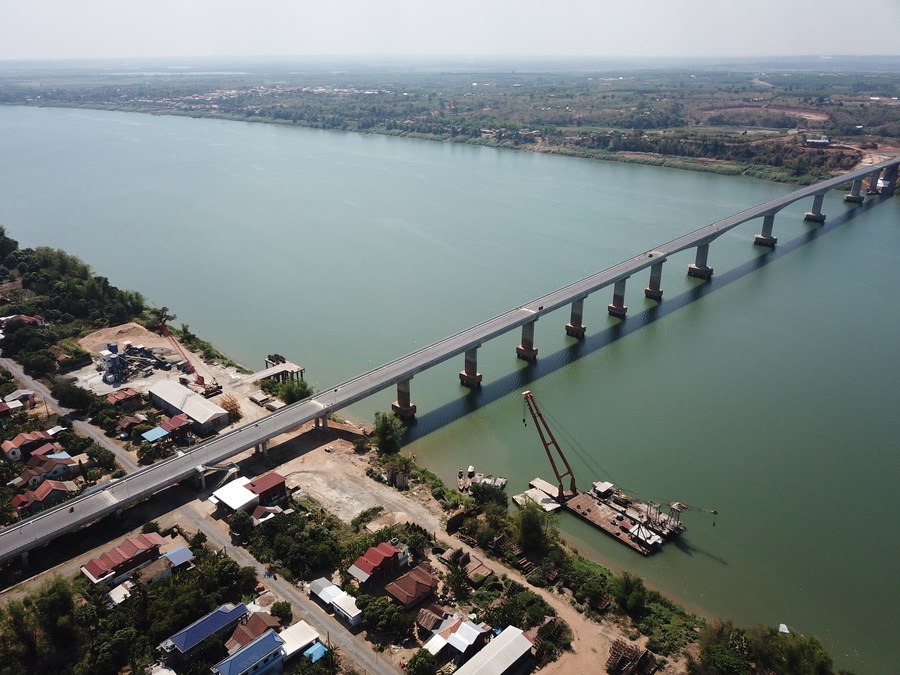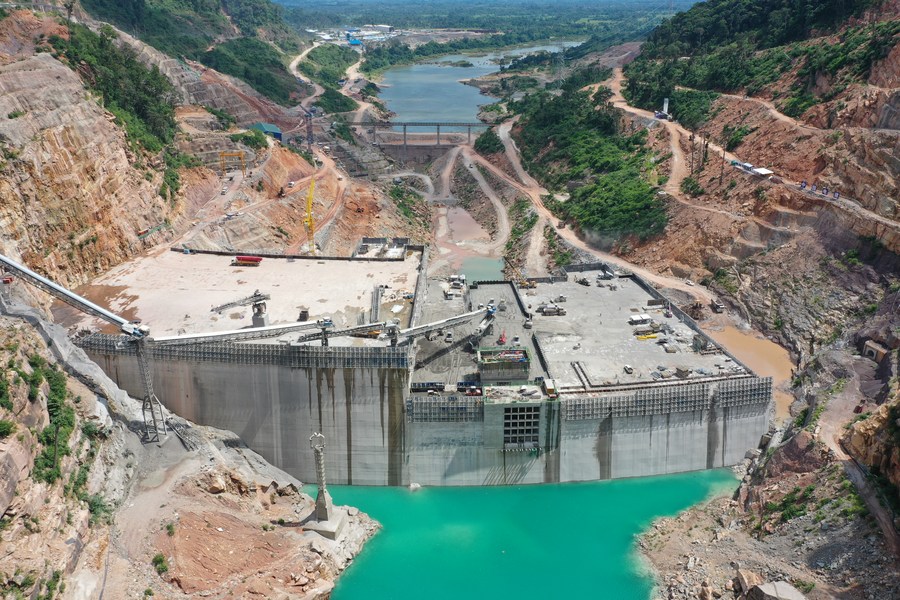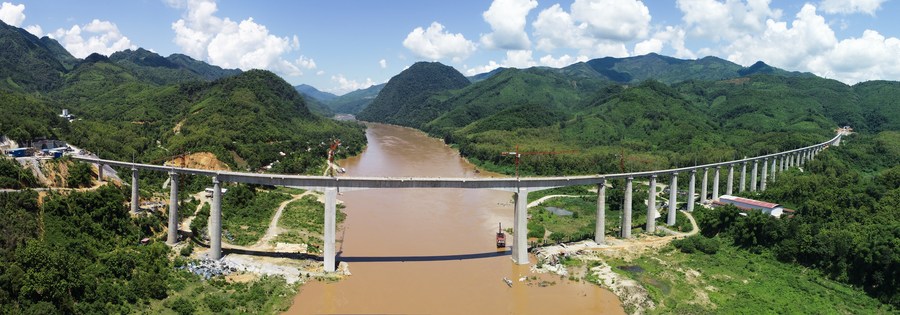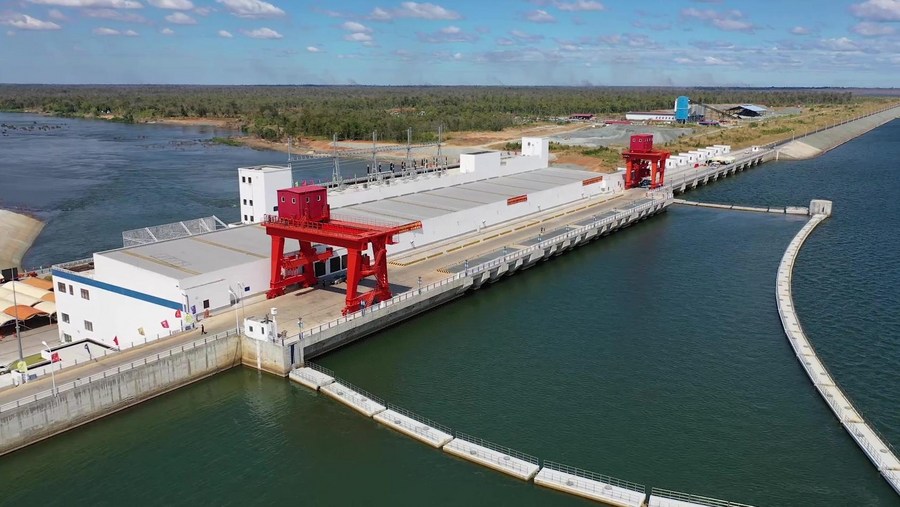LMC to continue to inject new impetus into China-ASEAN ties, ASEAN community building: Cambodian experts
The Lancang-Mekong Cooperation (LMC) will continue to inject impetus into the China-ASEAN cooperation and the ASEAN community building towards a more open, inclusive and prosperous region, Cambodian experts said in recent interviews with Xinhua.
The Lancang-Mekong Cooperation (LMC) will continue to inject impetus into the China-ASEAN cooperation and the ASEAN community building towards a more open, inclusive and prosperous region, Cambodian experts said in recent interviews with Xinhua.

Aerial photo taken on March 11, 2021 shows the eighth Cambodia-China Friendship Bridge across the Mekong River, connecting Kampong Cham province and Tboung Khmum province in southeastern Cambodia. (Shanghai Construction Group/Handout via Xinhua)
Launched on March 23, 2016 during the first LMC Leaders' Meeting in Sanya, a resort city in south China's Hainan Province, the LMC consists of six countries, namely China, Cambodia, Myanmar, Laos, Thailand and Vietnam.
Pou Sothirak, executive director of the Cambodian Institute for Cooperation and Peace, said cooperation among the LMC countries has blossomed in areas of connectivity, industrial capacity, cross-border economy, water resources, agriculture and poverty reduction.

Aerial photo taken on July 17, 2020 shows the construction site of the Nam Theun 1 hydropower project in Borikhamxay Province, Laos. (Sinohydro 3/Hangout via Xinhua)
"Within the past five years, there have been remarkable results achieved in the implementation of LMC projects," he told Xinhua.
He added that it is expected that the LMC will continue to support the ASEAN Community building and regional integration process, and promote the implementation of the United Nations 2030 Agenda for Sustainable Development.
"If all projects are faithfully and properly implemented, the LMC will be able to reinforce the spirit of cooperation among the six countries along the Lancang-Mekong and serve as a concrete road map toward the prospect of a more open, inclusive and prosperous region, allowing all the people in the Greater Mekong Subregion to reap greater benefits with their livelihood improved, narrowing the development gap, and making ASEAN Community building a step closer to reality," Sothirak said.

Aerial photo taken on July 24, 2020 shows the China-Laos Railway's Ban Ladhan Mekong River Super Major Bridge in Laos. (Photo by Pan Longzhu/Xinhua)
Moving forward, he said the LMC should remain open and inclusive and all projects need effective coordination, monitoring and evaluation mechanisms to ensure that each project is implemented correctly in accordance with its intended goal and comply with the global best practice as well as serve the best interest of the recipient countries' national priorities.
So Sophort, secretary general of the Cambodia National Mekong Committee, said the sustainable economic growth in the riparian countries and the environmental sustainability of the Mekong are the demand and core business for all the Mekong countries.
"The LMC should consider continuing to increase the investments and assistance for the sustainable development in the Lancang-Mekong River Basin," he told Xinhua. "In this context, the LMC should further strengthen its relationships economically, technically and politically, and regional connectivity among the LMC member states for the shared prosperity and sustainable future in the Lancang-Mekong region."

Photo taken on Dec. 16, 2018 shows the Chinese-built Lower Sesan II hydroelectric power station in Stung Treng Province, Cambodia. (Xinhua)
In addition, he said, there should be a need for all Mekong initiatives to work together within the cooperative framework for the sustainable outcomes, meeting the needs and keeping the balance in the Lancang-Mekong River Basin.
Thong Mengdavid, a research fellow at the Asian Vision Institute's Mekong Centre for Strategic Studies, said China has committed many regional development projects to help the Lancang-Mekong countries fight against the COVID-19 pandemic.
"The LMC has contributed greatly to the development of the Mekong sub-region countries," he told Xinhua, adding that to succeed with those projects, more efforts are needed in fostering information and investment transparency, cultural and tourism promotion, and joint non-traditional security cooperation.

